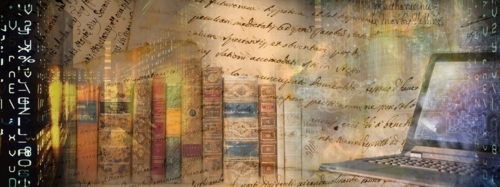Let me begin to think of DH as a librarian , any typical librarian would tend to map the field of DH and the information landscape of humanities scholars. This would generally result in a classification number.
In DDC (Dewey Decimal Classification), DH would be represented as 001.30285
- 001 is for whole Knowledge
- 001.3 represents Humanities
- 0285 denotes Computer applications in a specific subject
In CC (Colon Classification), it would be something like MZA 0g D [P], 6 [P2], 8 (B)
- MZA is Humanities
- 0 (Zeero) is the connecting symbol
- g is the influence phase relation
- D [P], 6 [P2], 8 (B) for computer
In both of these numbers, we understand that the DH is a subfield or sub-discipline of the humanities rather than a distinct academic domain. The debate goes on whether DH is a single field or several fields, or whether it should be independent and possibly an academic discipline in its own right.
We usually define DH as the intersection of computing and the disciplines of the humanities, and the DH practice as the multiplicity of ways that humanities scholars have turned increasingly to digital and information technology and how they engage with it. First and foremost, we made a distinction between traditional scholarship and digital scholarship. That is to say, the digital has prompted the humanities to move beyond traditional scholarly horizons. It seems to me (and to many others) that presently DH considers technology’s role as a tool, using those tools, helping others to use them, and, to some extent, developing new tools (and methodologies). It still maintains a very instrumental approach to technology. Digital scholarship does not rely only on the use of computational methods and tools. So as the DH. It is not just a field where humanists meet with and use digital resources, methods, tools and technologies. It is not just about making use of machine learning and immersive digital technologies in the humanities. The digitalization of our society (ubiquitous & pervasive computing and IoT) creates an increasingly blurred distinction between analog and digital. To me, DH means exploring how digital transformation will influence humanities studies and vice versa.
Further, I still feel DH has a very strong textual focus and is corpus-based. It is still centered on textual studies, digital editing of manuscripts, and literary studies (especially regarding late antiquity and the Middle Ages). Text is a privileged data type in DH. There is less research on multimedia, non-textual representation and the born digital.
I would say that digital humanities is an evolving academic field. It is dynamic, not static. We are still exploring the potential of what can be done with the available tools and methodologies, with many more technologies to come. So, defining DH within a “disciplinary boundary” will limit its ongoing development. Therefore, we shall let the discipline evolve on its own.
And finally, curation is a defining feature of scholarly practices in DH. We shall always document what we does and promote open access in DH. We need more inclusion and multilingualism and less western or Eurocentric narratives.

Featured image © Stanford University


